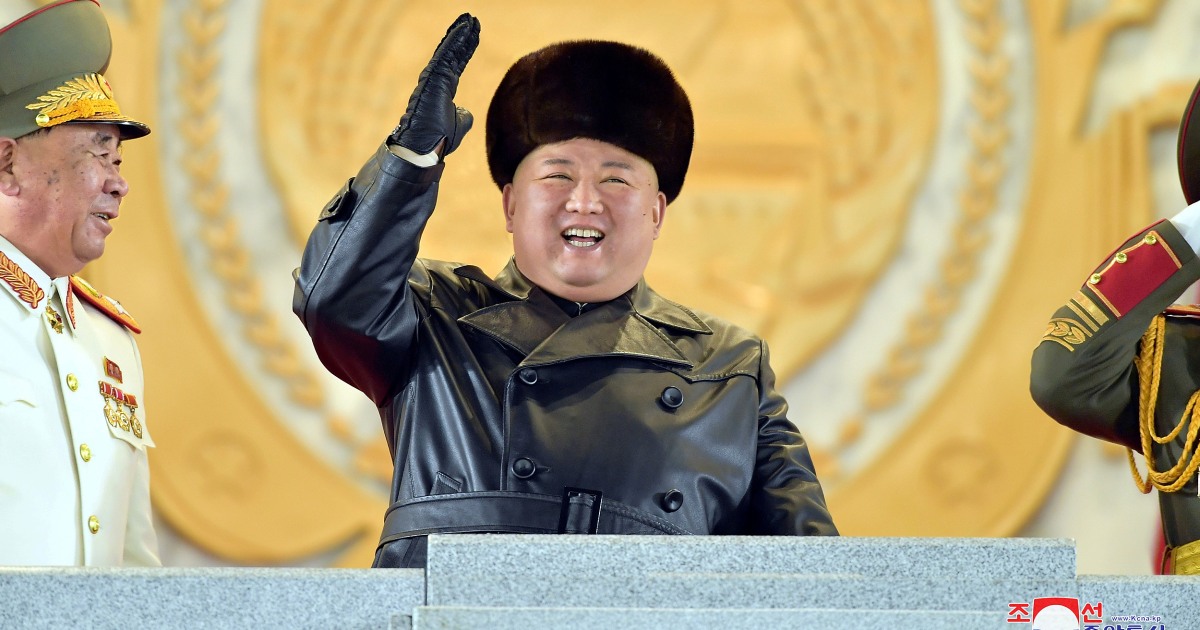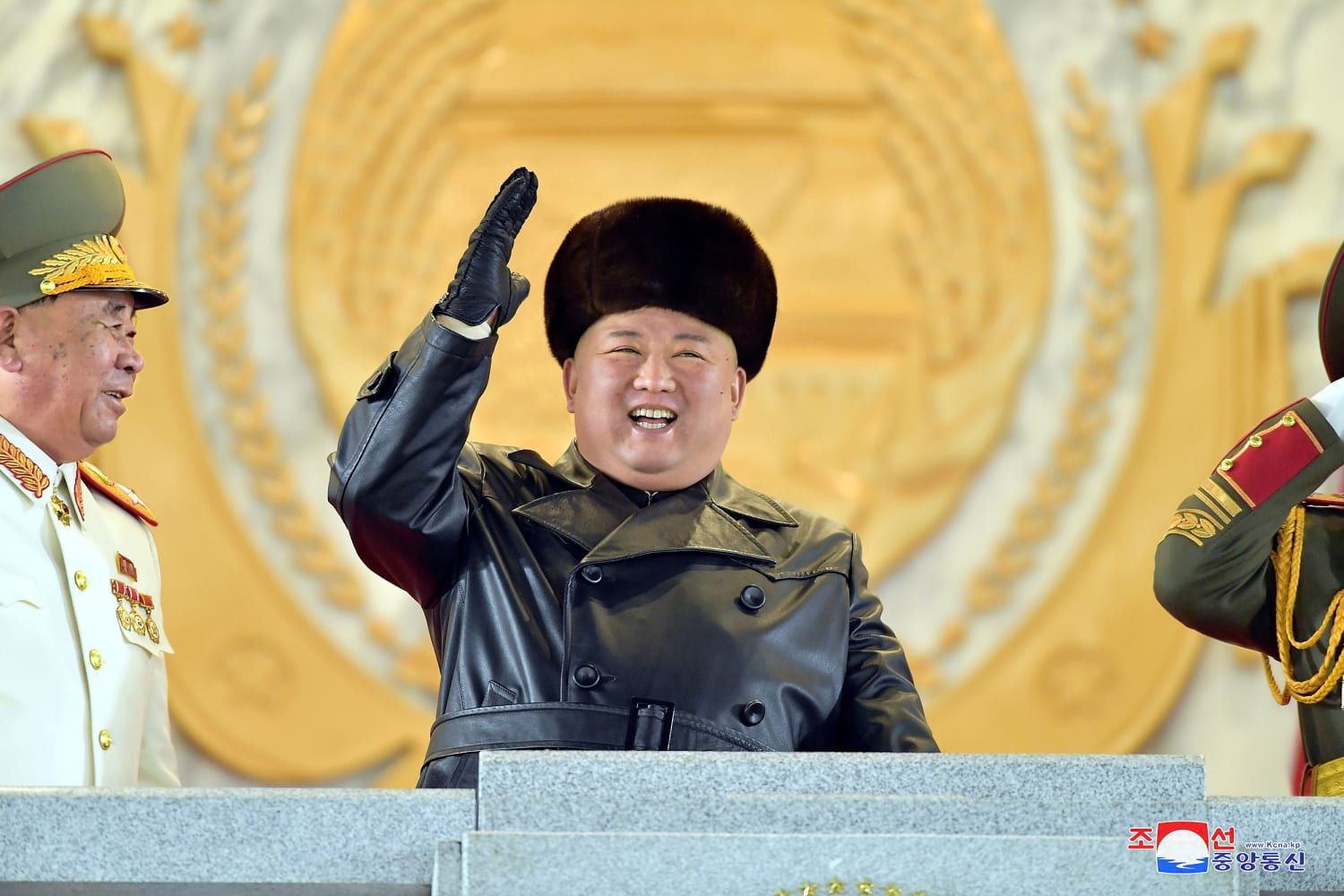
The coronavirus pandemic has created a de facto sanctions regime in North Korea that former Trump national security adviser John Bolton, a foreign policy hard-liner, could only have dreamed of.
It has been one year since Pyongyang stopped all train and air flights in and out of the country. Authorities have implemented a shoot-on-sight order against their own citizens in border areas, and residents are told that the virus can be transmitted not just through respiratory droplets, but also through the snow that drapes the country this time of year (a theory for which there is zero scientific evidence).
From March, it banned any foreign visitors whatsoever, forcing many accredited diplomats and nongovernmental organization workers to leave the country; those who remain at foreign embassies cannot receive diplomatic pouches that carry hard currency, which the regime claims (with little evidence) could transmit the virus. All foreign cargo has been banned since last summer. The regime further imposed a mandatory 30-day quarantine period for anyone who re-enters the country, effectively sealing it off from all foreign tourists, who are typically an important source of hard currency.
This means the country has no access to vaccines against the coronavirus and minimal access to testing; according to health experts, North Korea has not asked Russia or China for the vaccines, and it rejected offers of help from the U.S. and South Korea last spring. But even if it had both vaccines and testing, the country is likely to stay closed for the foreseeable future: Officials have said North Korea will reopen only after the pandemic has ended, which is a long way off.
The coronavirus and the policies compelled by it are putting the country in an unprecedented situation — the consequences of which are unclear for U.S. and South Korean policy.
The lockdown might seem typically draconian, given North Korean paranoia, but parts of it are justified, because the country has no public health system that could contain an outbreak. Decades of poor health care, food shortages and nutritional deficiencies have created a large vulnerable population with comorbidities — as well as left the country with a disproportionate percentage of relatively young people, meaning the number of asymptomatic carriers could be quite high. As a doctor with experience in North Korea observed, the North Koreans are rightly treating the virus like a national security threat, with even a “0.001 percent chance” of transmission being unacceptable.
North Korea officially claims not to have identified even one positive case in the country, belying the true fear the government has that all these measures cannot forestall — and have not prevented — an outbreak.
For instance, not even Pyongyang’s iron hand can completely seal the border with China: Smuggling remains rampant, and smugglers in places like the North Korean city of Hyesan and the Chinese city of Tonghua operate at even higher premiums because of lockdown conditions. That means that there are assuredly contacts between people in China’s Jilin province (which neighbors North Korea and has the largest population of ethnic Korean expatriates in the world) and people in North Korea, regardless of the government’s efforts.
And at the end of January, Chinese media reported a spike in positive cases in Jilin: As of Jan. 29, reports of case counts had soared to 167 from 10 only 12 days earlier. (Many believe the actual number is significantly higher.) The virus will have assuredly crossed the border by now, if it hadn’t already.
Officials have said North Korea will reopen only after the pandemic has ended, which is a long way off.
Before now, experienced North Korea watchers have generally dismissed any discussion that the regime’s internal hardships could create a tipping point for change by pointing to how much pain North Koreans have endured at the hands of their dictators. But the coronavirus and the policies compelled by it are putting the country in an unprecedented situation — the consequences of which are unclear for U.S. and South Korean policy.
Seeming experts on North Korea have argued that, if the regime ever did reach a breaking point, China would bail it out or NGOs would provide assistance or that, if it wanted to avoid chaos in the country, the U.S. could loosen sanctions to allow trade to flow into the country.
But China cannot bail North Korea out in this pandemic, NGOs cannot provide assistance, and loosening U.S. (and U.N.) sanctions would not increase trade all, because North Korea has sealed its own border.
The results of the regime’s actions are pain on a dimension heretofore unseen. Bilateral trade with China, which is normally 90 percent of North Korea’s total external trade, has fallen by about 81 percent year over year. Goods — including containers of medicine — are reported to sit at the border for weeks, given North Korea’s fears of virus transmission. Food and fuel prices have skyrocketed. The economy contracted by as much as 8.5 percent to 10 percent, numbers not seen since the famine of the mid-1990s.
Whether the regime can overcome its paranoia to accept any Covid-related assistance is an open question.
In fact, because of the pandemic, North Korea has become an incredibly more isolated version of itself of its own volition, potentially enhancing the conditions that could accelerate its reaching a breaking point while also cutting off its usual sources of aid.
Moreover, a study by the Center for Strategic and International Studies indicates that North Korea may stay closed long after the pandemic eases: after the end of pandemics like Ebola and MERS, North Korea’s cross-border activity remained halted for several months longer than South Korea’s.
Practically speaking, this means North Korea could stay closed to the rest of the world for the rest of 2021 and possibly well into 2022, including to Chinese goods. The economy will, obviously, be devastated, but the human costs of the economic devastation will be truly terrible. And if the coronavirus or one of its more contagious variants does enter the country and is allowed to spread, many people will die and many more will be quarantined in an even more brutal fashion.
The world is likely to assist should a humanitarian disaster emerge in North Korea, as it has done in the past — even during a pandemic. But whether the regime can overcome its paranoia to accept that assistance is an open question.
One opportunity may present itself soon: In the first published interim vaccine distribution forecast last week from COVAX, the World Health Organization-coordinated vaccine program, North Korea is listed as a potential recipient of 2 million doses this year. But that is only 10 percent of the population, and it would require the regime to allow for international verification that doses are going to front-line health care workers (and not to the elite and to the military). The combination of need and lockdown in North Korea may provide opportunities to expand internet access to the outside world, simply to allow health care and vaccination training through telemedicine platforms.
Some help needs to come soon; otherwise, the regime could face internal challenges that even those with confidence in its resilience may not be able to dismiss.
Source: | This article originally belongs to Nbcnews.com










